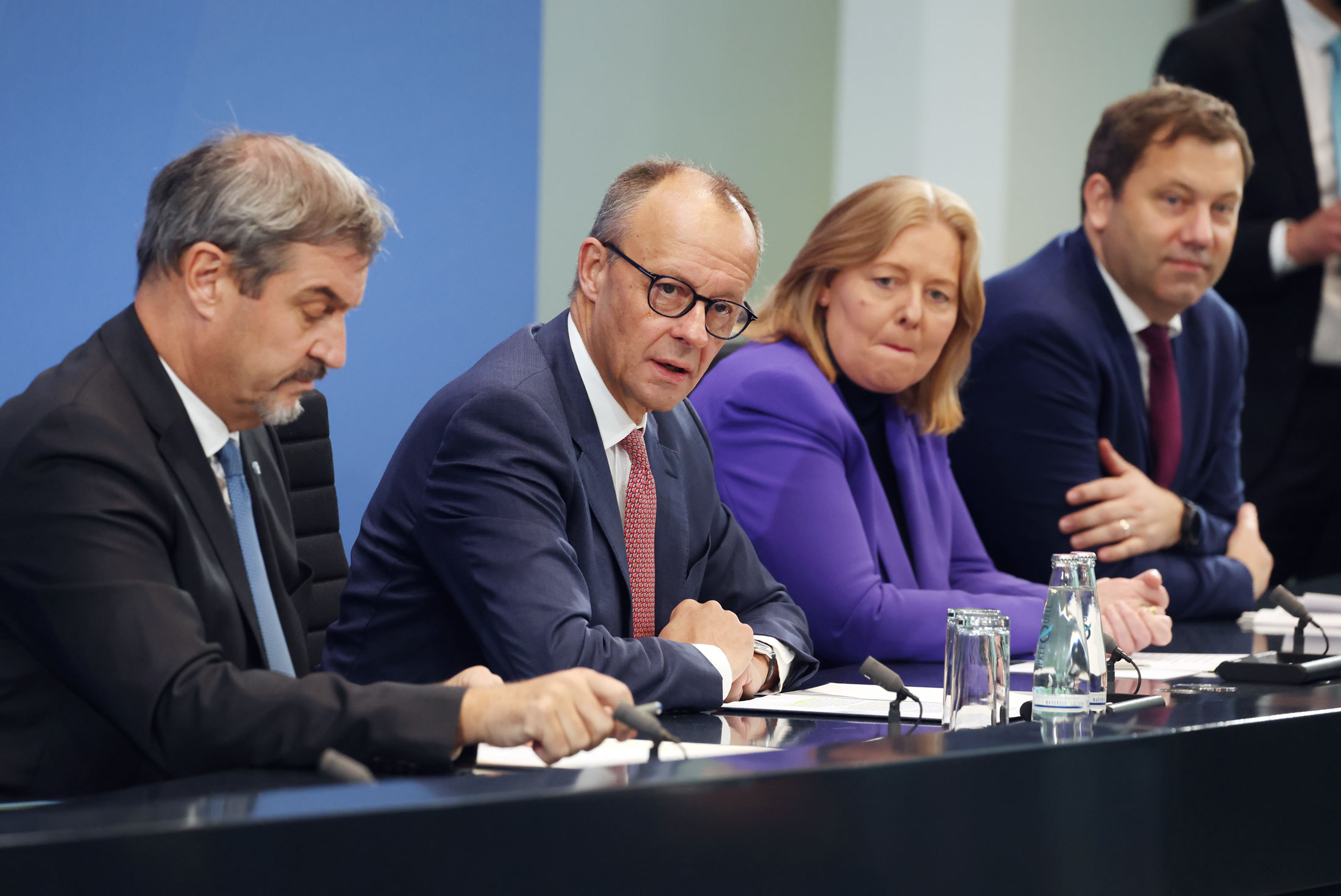German Coalition Agrees on EV Incentives Worth €3 Billion
(Bloomberg) -- German Chancellor Friedrich Merz’s ruling alliance agreed on new purchase incentives for zero-emission vehicles worth €3 billion ($3.5 billion) through 2029, part of his government’s broader effort to support the nation’s ailing carmakers.
Merz announced the measures — targeted at low- and middle-income households — after talks with his Social Democrat partners in Berlin. The conservative leader is hosting top auto executives and labor officials later on Thursday to discuss the future of the industry, a key sector of Europe’s biggest economy that is struggling with increasing competition from China and uncertainty around US trade tariffs.
“We agree that we want to do everything we can in the coalition under the responsibility of the federal government to ensure a bright future for the German automotive industry,” Merz told reporters alongside Finance Minister Lars Klingbeil, the SPD co-leader who is also the vice chancellor.
The coalition, which took office in May, had been expected to unite behind Merz’s push for the European Union to water down its 2035 ban on new combustion-engine vehicles. The chancellor said there would be further discussions with carmakers on the ban later Thursday and hopefully an agreement on a joint coalition stance.

“We want to work within the EU to ensure that decisions are made in Europe that are also right and necessary for the German automotive industry,” Merz said.
Klingbeil echoed the chancellor’s call for technologies like new plug-in hybrids and vehicles with combustion-fired range extenders to be permitted beyond 2035, suggesting an accord is imminent.
Senior members of Merz’s Social Democrat junior partners had initially pushed back against watering down the ban, including Environment Minister Carsten Schneider.
“For us, as the SPD, what unites us in the coalition is that we want a strong automotive industry, we want to secure jobs in the automotive industry today, but we also want to lay the foundations for creating the jobs of the future,” Klingbeil said.
Following Thursday’s car summit, the coalition is expected to call on the EU to give carmakers more flexibility to reach fleet emissions goals, while the government this week confirmed it will extend a tax exemption for new electric vehicles until 2035.
Merz will still need to align his EU partners behind Germany’s position on the combustion ban. The European Commission is currently reviewing its emissions caps for the auto sector and will propose a package to help carmakers by the end of the year, according to people familiar with the matter.

That could include additional flexibilities for carmakers on the 2030 goal to cut emissions by 55%, by introducing an averaging system over multiple years, akin to similar tweaks made earlier this year to the 2025 target, one of the people said.
There is still reluctance, however, to lift the target of only selling zero-emission cars and vans after 2035, according to the people, who asked not to be identified discussing confidential deliberations.
The Commission has already committed to creating an exemption for so-called e-fuels, made using captured CO2 and renewable power, which could also be used to power new combustion-engine cars, plug-in hybrids and range-extended vehicles.
(Updates with Merz, Klingbeil comments starting in fifth paragraph.)
©2025 Bloomberg L.P.





